- BlackVoter.Org
- Posts
- BLACKVOTER.ORG
BLACKVOTER.ORG
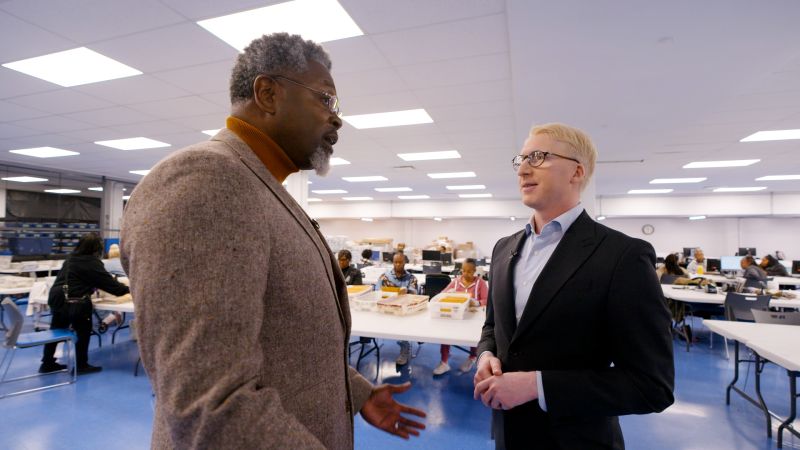
In the aftermath of the chaotic 2020 election, Detroit election officials are gearing up for 2024 with a solid plan to ensure smoother vote counting and minimize disruptions. Behind closed doors, CNN gained exclusive insights into their revamped strategies, which include expedited signature verification for mail-in ballots and a significant investment in high-tech machinery.
Reflecting on the tumultuous protests from 2020, officials express a commitment to transparency and efficiency, aiming to restore trust in the election process. With enhanced preparations in place, they hope to navigate the complexities of the upcoming election more effectively, promising quicker results and a more organized operation.

As the U.S.
gears up for the pivotal November 5th elections, Guyanese American voters are rallying behind Kamala Harris, the Democratic nominee poised to potentially make history as the first female president. With around 74% of Guyanese immigrants in the U.
S. now naturalized, their voices are crucial in shaping the outcome.
Many are optimistic, like Annan Boodram, who believes Harris has more support than polls suggest. Val Williams echoes the sentiment, emphasizing the global implications of a female American president.
However, anxiety looms among some voters, with concerns about the ramifications of another Trump presidency. Author Selwyn Collins articulates fears over shifting political landscapes threatening democracy.
Amidst differing opinions, a common thread emerges: the awareness of the election's significant impact on future generations. As Harris gains momentum, Guyanese Americans remain determined to advocate for a political direction aligned with their hopes and values.

In a recent NAACP poll, Vice President Kamala Harris shows promise in winning over a crucial demographic: Black men. After struggling with this group, particularly younger voters, Harris has seen an increase in support—59% now back her, up from 51% in August.
Encouragingly, votes for former President Trump have decreased from 27% to 21%. The shift comes as Harris actively engages this audience, notably through barbershop visits and targeted town halls.
Despite the gains, challenges remain; about one in five Black men still support Trump, influenced by disinformation circulating online. Former President Obama and Michelle Obama have also stepped in, urging Black men to take the election seriously and to recognize its implications for women's rights and healthcare.
While the Harris campaign presses on to solidify this support, the path to victory hinges on maintaining strong engagement in key swing states.

As the 2024 election heats up, Indian American voters are buzzing with excitement about Kamala Harris's candidacy, marking a historic milestone as the first South Asian candidate to lead a major party ticket. Celebrated at a recent Diwali event in New York City, influential figures from the community see Harris as a symbol of representation and empowerment.
Despite this enthusiasm, a notable shift is emerging, with some voters drawn to Donald Trump's strong relationship with Indian leadership and his focus on pressing issues like immigration. Polls suggest that while 61% still favor Harris, 32% lean towards Trump, indicating a slight shift toward the GOP, especially among younger Indian American men.
As both candidates intensify their efforts to win over this vital demographic, the outcome could hinge on how effectively they resonate with the concerns and aspirations of this burgeoning political force, particularly in swing states.
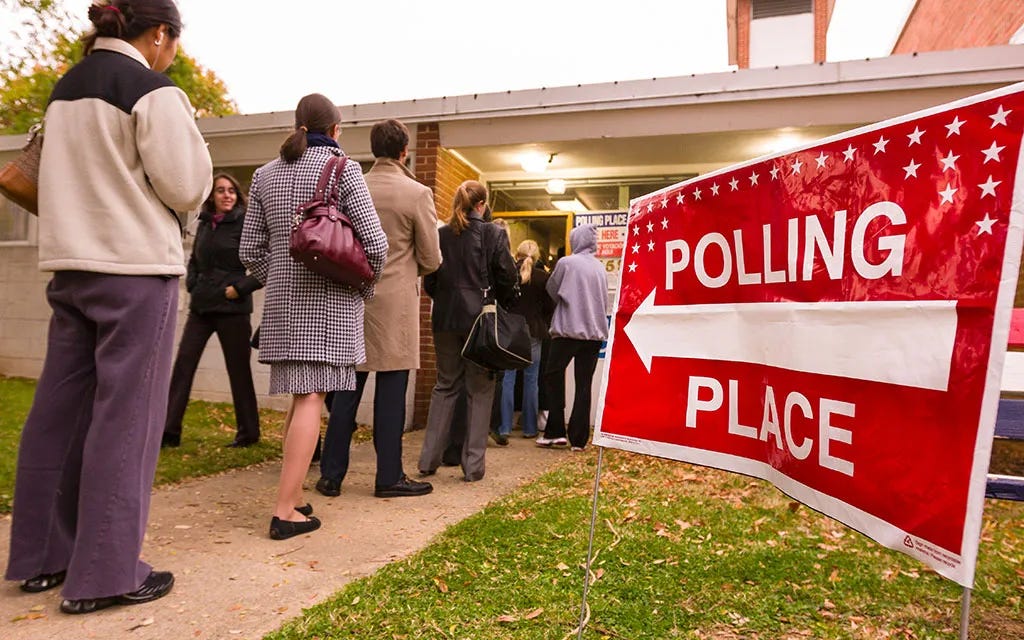
In North Carolina, early voting trends remain steady as the final week approaches. Over the weekend, Democrats did well, but unaffiliated voters are leading the pack, with many of them new to the electoral process.
With both major parties still banking votes, Republicans hold a slim edge in early in-person ballots, but younger unaffiliated voters could tip the scales. Notably, Democrats are struggling to engage African American voters, facing a deficit compared to previous elections.
As we draw closer to Election Day, it's imperative for both sides to mobilize their potential supporters. Voter turnout predictions suggest over three million people are yet to cast their ballots, many of whom may be the younger unaffiliated voters that Democrats hope to attract.
Ultimately, the success of grassroots operations will be pivotal in determining the election outcome, revealing the dynamic and unpredictable nature of voter behavior.


In a thought-provoking opinion piece, Theodore R. Johnson explores the intriguing dynamics of Black voters and their critical role in shaping America's political landscape.
Drawing from recent conversations with diverse voters in Wisconsin and North Carolina, he highlights the excitement among first-time voters, the ambivalence of others, and the unexpected support for candidates like Donald Trump. Johnson underscores the importance of understanding the nuanced messages from Black America, warning against oversimplifying their electoral impact.
As the nation approaches a pivotal election, he urges that misreading this moment risks overlooking significant insights from a community that has historically influenced American democracy. The piece serves as a reminder that the Black vote is not just a statistic but a vital narrative that could determine the future direction of the country.
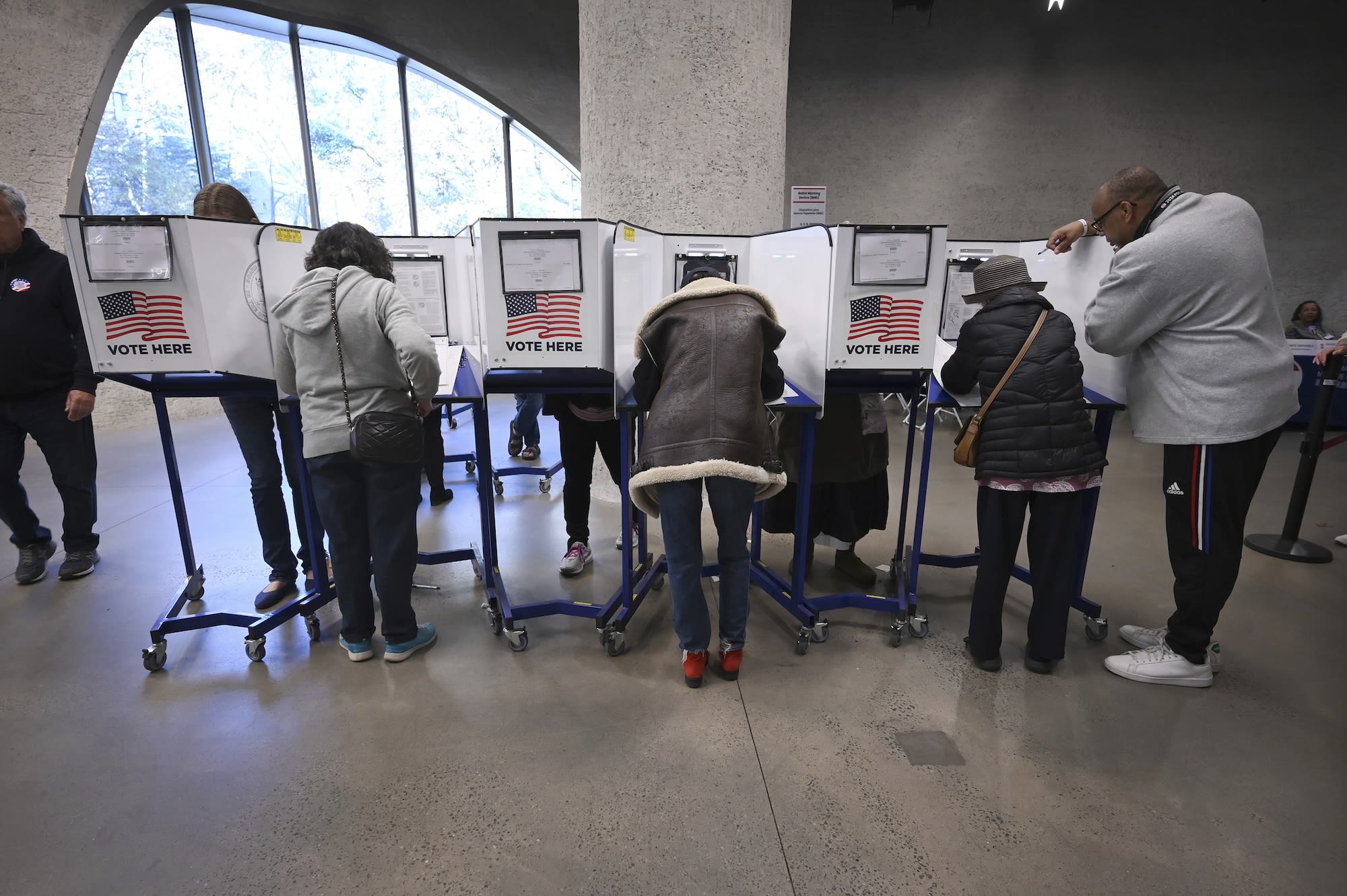
As we approach Election Day, early voting trends reveal a notable shift compared to 2020. With over 43 million ballots already cast, overall preelection participation is down from the record highs of four years ago, influenced by changes in voter demographics.
This year, early voters are older, predominantly White, and more likely to identify as Republican. In particular, voters aged 65 and older represent 46% of early ballots, a significant increase from 2020.
While Georgia bucks the trend with steady early turnout, North Carolina has seen a decline, especially in mail-in ballots due to stricter voting laws. The political landscape is also shifting, as more Republicans are opting for early voting compared to previous elections.
These early patterns provide a glimpse into the evolving dynamics of the electorate as the nation gears up for a consequential vote.
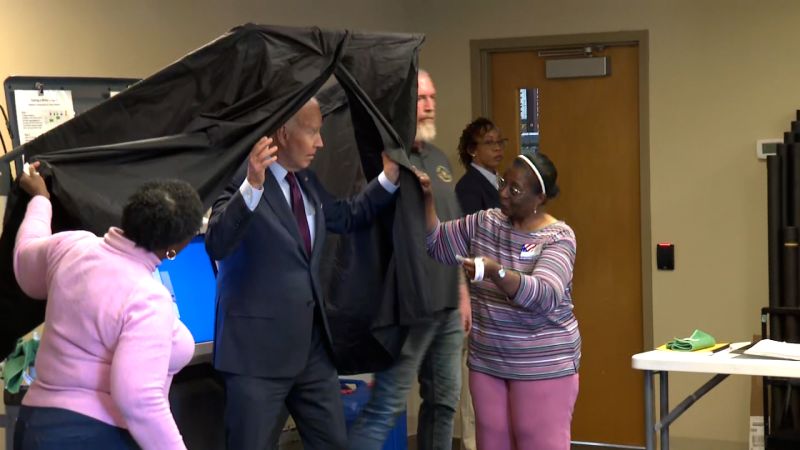
President Joe Biden made headlines as he took a moment to wait in line and vote in New Castle, Delaware, demonstrating his commitment to civic engagement during the pivotal 2024 election season. Captured in a candid moment, Biden's participation underscores the importance of voting and sets an example for citizens nationwide.
As he exercises his right to vote, the President emphasizes the significance of every individual's contribution to democracy. This public act not only highlights his role as a leader but also serves as a reminder that every vote counts in shaping the nation's future.
As Americans prepare for the upcoming elections, Biden's engagement fuels the conversation about the role of voting in the electoral process, igniting a renewed sense of civic responsibility among the electorate.

As Black men show declining support for Kamala Harris in the upcoming election, the conversation around their political engagement is heating up. Many, like Herman Muhammad from Denver, express feelings of disconnection, citing a lack of real change from both major parties.
A recent survey shows that a surprising 20% of Black men now lean towards Donald Trump, driven by frustration with unfulfilled promises and a perceived neglect of critical issues like housing and economic equity. While political activist Hashim Coates urges engagement, underscoring the importance of voting, others like Muhammad remain skeptical, arguing that neither candidate sufficiently addresses their community's needs.
With ballots already in hand, opinions vary; some see potential in third-party candidates, while others commit to traditional party lines. Ultimately, the sentiment echoes a deep desire for substantive change rather than mere representation, leading to a complex landscape as Black voters approach the polls.
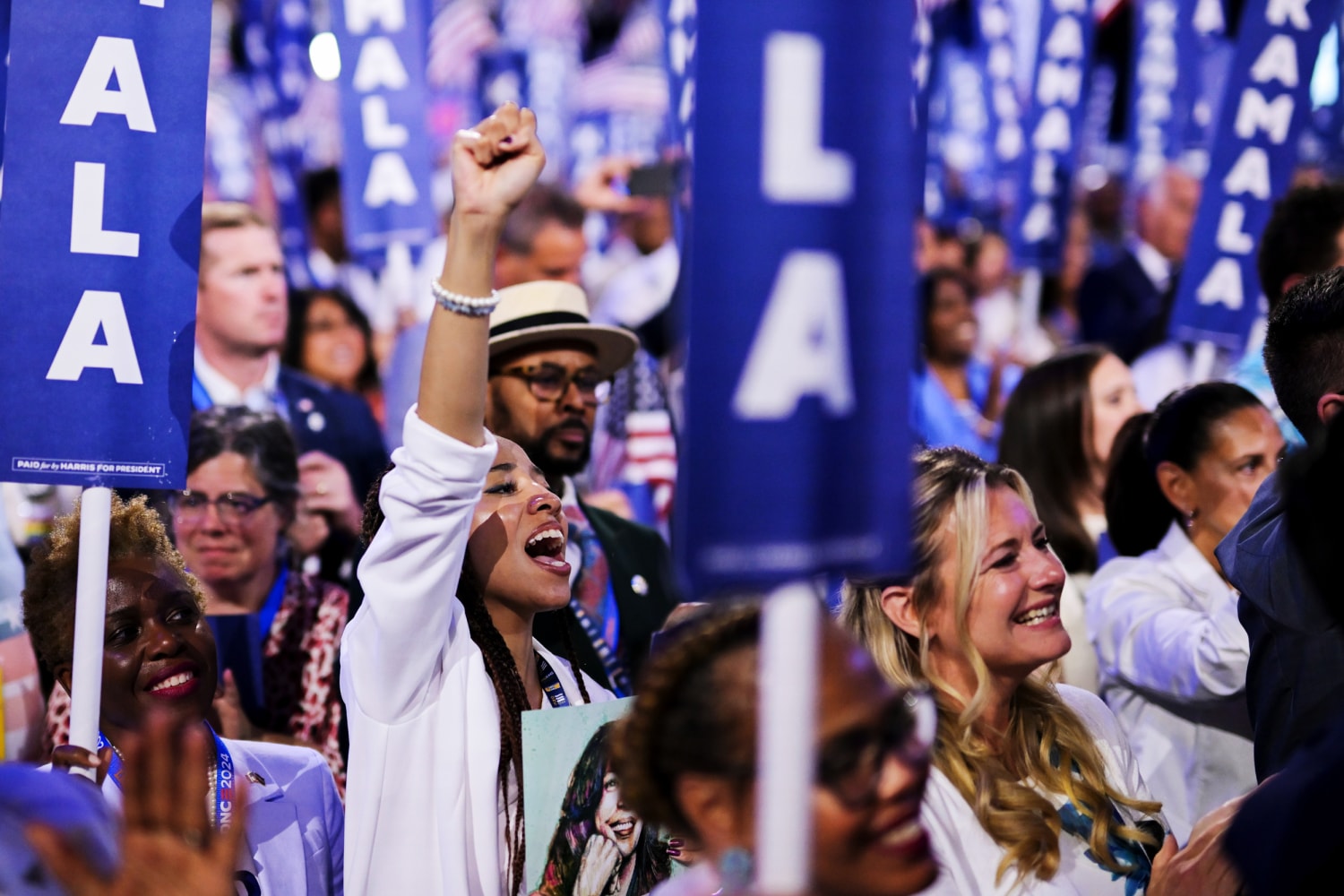
Meet David Austin, a dynamic 20-year-old Democrat and political powerhouse who’s shaking up the landscape with his multimillion-dollar PAC aimed at energizing Gen Z voters. From his creatively decorated “war room” in his mom's South Jersey home, this young trailblazer has raised an impressive $18 million for ForwardBlue.
Austin, who plunged into politics in middle school, believes that young voices are crucial for reaching his generation. Unlike traditional methods, his PAC employs innovative strategies, utilizing digital ads and direct outreach in unconventional spaces to connect with voters aged 18 to 24 in key battleground states.
With 500,000 donors and millions of voter contacts made, Austin’s approach resonates through a youthful lens—focusing on issues like housing affordability and aligning with modern communication styles. While he’s passionate about politics, David keeps his roots grounded, still running the show from his childhood home.

As the U.S.
election approaches, Ghana's African American diaspora finds itself divided over the political landscape they left behind. Many former U.
S. residents, like shop owner Jimmie Thorne, remain deeply engaged, donning Harris gear and voicing concerns about the potential implications of a Trump victory for both America and Africa.
Launched in 2019 by President Nana Akufo-Addo, Ghana's "Year of Return" initiative has attracted notable African Americans like Steve Harvey and Usher, reinforcing their connection to ancestral roots and invigorating the local culture.
While some voters passionately support Kamala Harris, seeing her candidacy as a representation of progress, others believe in giving Trump another chance due to his economic policies.
Yet, a faction prioritizes African issues over U.S.
debates, with a focus on local empowerment. With Ghana’s own elections on the horizon, this community is not just a distant observer but a vibrant part of the narrative, eager to shape the future in both nations.

As the 2024 presidential election approaches, Native American voters are once again emerging as a critical swing demographic that could tip the scales for either Donald Trump or Kamala Harris. A century after gaining the right to vote, this community, historically leaning Democratic yet more likely to vote Republican than other minority groups, is being courted fiercely by both campaigns.
While Harris highlights treaty rights and environmental protections, Trump emphasizes economic self-determination and federal recognition for tribes like the Lumbee. With swing states like Arizona and North Carolina in the balance, both candidates are stepping up their outreach efforts.
Native voters face unique challenges that influence their choices, making this demographic a key player in determining the outcome of a closely contested election. As they mobilize, the importance of their voices in shaping policy and representation cannot be overstated.
